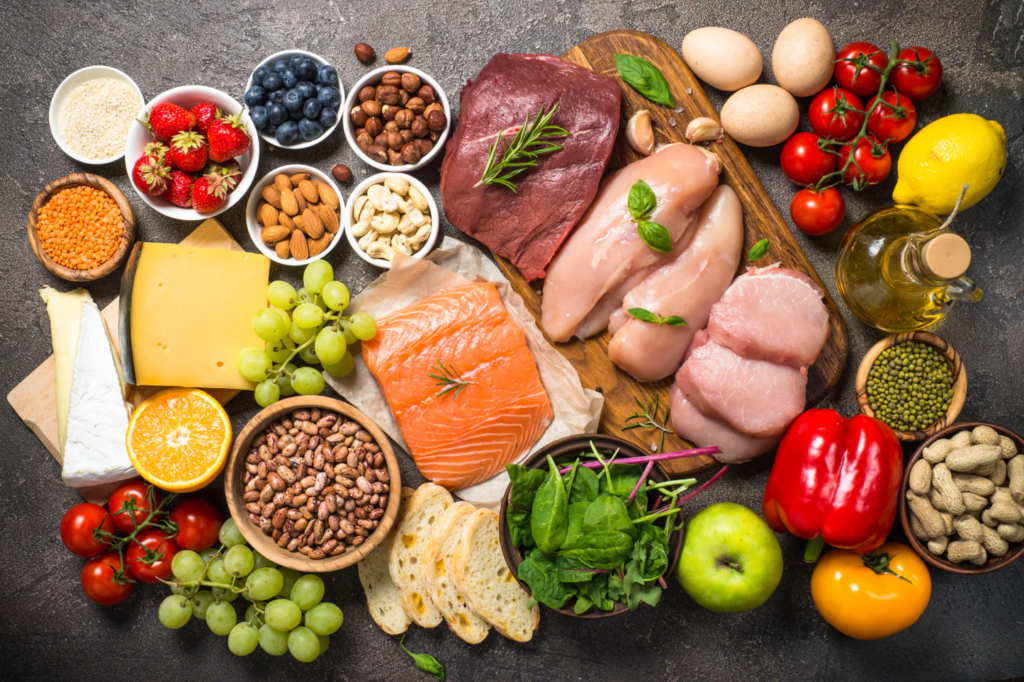In the landscape of global health, breast cancer stands as a formidable adversary, affecting millions of women worldwide. As the scientific community continues to explore innovative approaches to understand, prevent, and manage this complex disease, the spotlight has turned to the intersection of lifestyle factors and breast cancer outcomes. Among these lifestyle factors, the role of diet has emerged as a significant area of investigation.
a review recently published in the journal Nutrients by researchers from the University of Catania in Italy suggests that following a keto diet may have therapeutic benefits for people with breast cancer.
With approximately 2.3 million women receiving a breast cancer diagnosis globally in 2020, the urgency to uncover novel and effective strategies for breast cancer management has never been more pressing. This article embarks on a comprehensive exploration of the recent study, examining the broader context of diet and breast cancer while scrutinizing the implications of integrating a keto diet into the intricate tapestry of breast cancer care. As we navigate the landscape of dietary choices and their impact on breast cancer, the hope is to unveil not just promising findings but also to underscore the importance of evidence-based decision-making in the realm of oncology.
Diet and Breast Cancer: An Overview
The link between diet and breast cancer has been a subject of extensive research over the years. Unhealthy dietary practices, such as the consumption of ultra-processed foods, have been associated with an elevated risk of breast cancer. Notably, increased sugar intake, including the consumption of sugar-sweetened sodas, has also been linked to a higher likelihood of developing breast cancer. Conversely, various studies extol the virtues of healthy dietary patterns, with evidence suggesting that a diet rich in fruits, vegetables, cheese, and soy products, and low in red and processed meat, may lower the risk of breast cancer.
The Mediterranean diet, renowned for its emphasis on fresh produce, olive oil, and lean proteins, has emerged as a potentially protective dietary approach against breast cancer. Additionally, certain studies have explored the impact of specific foods on cancer treatment-related toxicities and overall prognosis, shedding light on the intricate relationship between diet and breast cancer outcomes.
Understanding the Keto Diet

At the heart of the recent study lies the ketogenic, or keto, diet. This dietary approach entails obtaining the majority of daily caloric intake from proteins and healthy fats while severely limiting carbohydrate consumption to 5–10% of total daily calories. The core principle of the keto diet is to induce a state of ketosis, wherein the body shifts from using carbohydrates for energy to burning fat. The diet has garnered attention for its potential benefits, including weight loss, appetite suppression, and positive effects on conditions such as type 2 diabetes, epilepsy, Alzheimer’s disease, polycystic ovary syndrome (PCOS), and even cancer.
Potential Benefits and Concerns of the Keto Diet in Breast Cancer
The University of Catania’s recent review set out to assess the potential therapeutic benefits of the keto diet specifically for individuals diagnosed with breast cancer. Through a comprehensive literature search encompassing both preclinical and clinical studies, the researchers unearthed a diverse range of findings. Some studies suggested that a keto diet might play a role in inhibiting tumor growth and improving treatment response in breast cancer patients.
However, caution is paramount. The researchers highlighted the inconsistent nature of the results and the scarcity of human trial data, emphasizing the necessity for rigorous clinical trials to substantiate the positive effects of the keto diet on breast cancer outcomes. Furthermore, concerns were voiced regarding the safety and long-term effects of sustained ketosis in cancer patients, underscoring the need for a more nuanced understanding of the implications of adopting a keto diet as part of breast cancer therapy.
Expert Perspectives on the Keto Diet and Breast Cancer
While the preliminary findings of the study spark interest, experts advise against hasty conclusions. Dr. Parvin Peddi, a prominent medical oncologist, stressed the preliminary nature of the research, cautioning against adopting a specific diet for breast cancer prevention or treatment based solely on these findings. Dr. Peddi highlighted the ongoing clinical trials that are carefully randomizing cancer patients to ketogenic diets versus normal healthy diets, anticipating that these trials will provide clearer insights into the potential benefits and degree of effectiveness of the keto diet in conjunction with standard breast cancer therapies.
Considerations and Limitations
It is crucial to recognize that the keto diet is not a universal panacea. Anabelle Ahdoot, a clinical nutrition manager and oncology nutrition specialist, emphasized the importance of individualized assessments. If the adoption of a restricted diet, including the keto diet, induces stress and negatively impacts the quality of life for individuals with breast cancer, it may not be the most suitable approach.
Ahdoot cautioned against major weight loss and malnutrition during cancer treatment, emphasizing the need to prioritize preserving the patient’s muscle mass, strength, and overall well-being. Any dietary changes, including the keto diet, should be evaluated in conjunction with existing medical modalities and treatments under the supervision of healthcare professionals.
Conclusion
The intersection of diet and breast cancer is a dynamic field, with the recent review from the University of Catania suggesting that the keto diet may hold therapeutic promise for individuals with breast cancer. However, caution is paramount, and the keto diet is not recommended as a standalone solution for breast cancer prevention or treatment at this stage. As ongoing research provides more insights, healthcare professionals and individuals affected by breast cancer should stay informed and collaborate to make informed decisions about dietary choices within the broader context of comprehensive cancer care. The journey toward understanding the intricate relationship between the keto diet and breast cancer is ongoing, and it is through careful consideration and evidence-based practices that meaningful progress will be made in this vital area of oncological research.










[…] Discover the potential therapeutic benefits of the keto diet for breast cancer care. Explore insights, expert perspectives, and considerations for informed decisions in oncological nutrition. […]